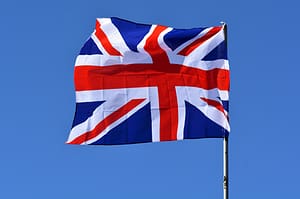Even though the EU is often seen as a single state, disregarding Brexit, it would seem that the laws on gambling vary quite a lot. Even though the EU does classify gambling as being under one umbrella law, there is no standardisation or regulation that applies to every country. The age limit can vary, and sometimes there are some forms of gambling which are not allowed to take place. If you are a gambler, then you need to know where you stand. You also need to know which forms of gambling are allowed where you live so that you can make the best decisions regarding your online entertainment.
The UK
UK operators are under quite a lot of pressure regarding the UK commission. Even affiliates who choose to promote UK-based bonuses have to make sure that they tread very carefully if they want to avoid breaking any rules.
Marketing gambling in the UK can be difficult, as there are a lot of rules to follow, and sometimes the advice is downright confusing. This alone makes it harder for affiliates who work in the UK. The legalisation of gambling in the US is also giving a lot of UK affiliates a run for their money. When you combine this with the fact that UK affiliates are being held accountable for the operators that they choose to market, it’s not hard to see why it’s a difficult landscape.
The EU betting association
The EGBA is the EU version of the UK’s Gambling Commission. It was established in the year 2007, but it has its own legislative bodies that help to regulate gambling. Betting portals such as Veikkauskertoimet.com are also regulated to ensure that there is a level of consistency in the entertainment market.
The EGBA is actually based in Brussels, and they have the very hard job of coordinating the Western European gambling industry. As a request from the EU, France chose to impose a 2009 bill which would help to regulate any online gambling activities. This happened to include sports betting as well as poker. The plot thickens, if you dive a little deeper. The ARJEL only gives a license to the French operators who have the intention of operating in the sports betting market. If you want to offer casino games or even spread betting, then there’s no clear-cut situation. French gamblers therefore, have to find different ways to gamble.
Gambling in Germany
The German laws are very complex to say the least. When you look at 2008, you will see that online gambling, in nearly every form, was banned. You could bet on the lottery or horse racing, but other than that, you had no options. The EGBA challenged this, and they stated that it was in fact a breach of EU rules. If you look to the year 2010, then you will see that the Court of Justice forced Germany to completely decriminalise gambling. They allowed private companies to operate if they offered gambling services. This ruling was passed across every single German state, other than Schleswig Holstein. They decided to pass their own, much more liberal policy. In 2013, ISTG was revoked by the new government, and this changed the state of gambling yet again, in every state except for Schleswig Holstein. Online gambling is banned due to this act, but it would seem that brick and mortar casino gambling is very much allowed.
Gambling in Spain
Spain has had a few changes made to its gambling laws. In the year 2012, the Gambling Commission issued various licenses for operators in the country. As a result of this, gambling then boomed, and it is now completely legal for the residents of Spain to gamble. They can bet on sports, play online bingo or even partake in live games. They can also play at an online casino and have a game of poker. This is a huge movement, and it’s safe to say that it has changed the industry as we know it.
Gambling in Italy
Italy’s gambling laws right now are very liberal. They are some of the most liberal across the whole of Europe. When other Euro zones were putting heavy regulations in place, Italy chose to grant legislations instead. This meant that private companies could provide sports betting services, regardless of whether they operated online or whether they operated a brick and mortar casino. In the year 2011, there were a few amendments made. This granted casino and poker licenses, meaning that now, Italian betters have a very good range of licensed sites to choose from, and they can also bet on just about anything they want as well.
The Euro Zone: What does the future hold
Even though time will tell what the future holds, it seems that right now, it’s inevitable that the gambling industry is going to be regulated even more. The question is, how is this going to happen? Each country has their own set of rules, and even though they are internationally governed, it’s a complex situation to say the least.
Please play responsibly. For more information and advice visit www.begambleaware.org






Leave a Comment